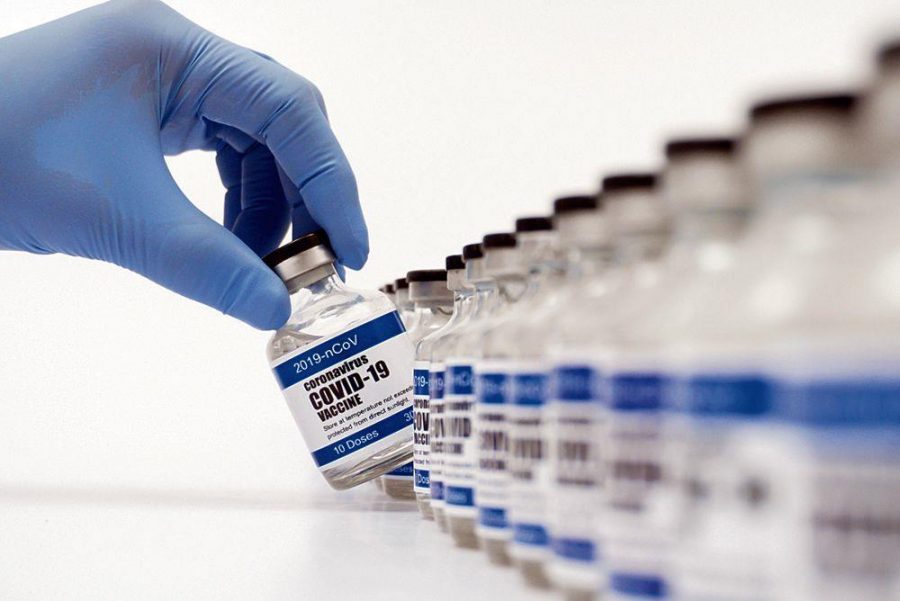
Artificial Intelligence and Virtual Reality Can Accelerate Covid Vaccine Development
In this global health emergency, the medical business is searching for new technologies to screen and control the spread of COVID-19 (Coronavirus) pandemic. Artificial intelligence is one of such innovations which can undoubtedly track the spread of this infection, identifies the high-risk patients, and is helpful in controlling this disease progressively. It can likewise anticipate mortality hazard by adequately analyzing the previous data of the patients. Artificial intelligence can assist us with fighting this infection by medical help, population screening, suggestions about the infection control, and medical notification. This technology can possibly improve the planning, treatment and reported outcomes of the COVID-19 patient, being an evidence-based medical tool.
The increasing cost of drug improvement is because of the enormous volume of compounds to be tried in preclinical stages and the high proportion of randomised controlled trials (RCTs) that don’t discover clinical advantages or with toxicity issues. Given the high loss rates, generous expenses, and low movement of drug discovery, exploiting known drugs can help improve their efficacy while limiting results in clinical trials. As Nobel Prize-winning pharmacologist Sir James Black stated, “The most productive reason for the discovery of another medication is to begin with an old drug”
AI can rapidly analyze irregular symptoms and other ‘warnings’ and consequently caution the patients and the healthcare authorities. It assists with giving quicker decision making, which is cost-effective. It assists in building up another new diagnosis and management system for the COVID 19 cases, through helpful algorithms. Artificial intelligence is useful in the diagnosis of the infected cases with the assistance of medical imaging advances like Magnetic resonance imaging (MRI) scan, Computed tomography (CT), etc.
In April, Apple and Google, the two major tech giants, connived for building up a contact-based application to trace COVID-19 patients. The application chips away at Bluetooth and has been generally utilized in western nations. In India, the government precluded a similar strategy by developing the Aarogya Setu app.
In June, India told the UN that drones and contact tracing applications have helped India in overseeing COVID cases. The application utilizes Bluetooth and location data to tell the user of any speculated COVID-19 patients close by. This application is created in 12 languages and has a user database of more than 10 million people. Other mobile applications, for example, “GoCoronaGo” and “Sampark-o-meter” have additionally been created for contact tracing by the Indian Institute of Science (IISc), Bangalore and IIT’s.
The search for a COVID-19 vaccine has extended around the world, with a large number of analysts teaming up at several research centers to fight the infection that has contaminated 56 million people and asserted over 1.34 million lives up until now.
Recently, a panel of experts noted at the Berlin Science Week, a ten-day science celebration, that AI and different innovations like machine learning (ML) can make sense of the mountains of data from a few experiments by finding patterns that a human mind may fail to spot.
As vaccine applicants advance to the last phases of testing in people, specialists said AI would be fundamental for analysing clinical and immunological data rapidly. Another innovation of significance in COVID-19 immunization research is automation.
When building a manufacturing process, people need to run an enormous number of analyses to limit on the right process parameters. Manufacturers additionally need to see how the production cycle can affect the quality of the vaccine, and discover approaches to optimise its yield.
Artificial intelligence can create an intelligent platform for automatic monitoring and prediction of the spread of this infection. A neural network can likewise be created to extricate the visual features of this infection, and this would help in appropriate monitoring and treatment of the contaminated people . It has the ability of giving everyday updates of the patients and furthermore to give solutions in COVID-19 pandemic.
Uwe Gottschalk, Chief Technology Officer at Lonza Pharma/Biotech, Switzerland said in the therapeutic space, particularly vaccine advancement, new developments and innovation are coming to help.
“The pharma business overall is very moderate and that is on the grounds that we can’t compromise constantly efficacy and safety of our products, and this has likewise been for a really long time blamed so as not to innovate, and from gene to R&D the mantra was it takes a couple of years to make clinical material from the DNA opening up for another medication,” Gottschalk said.
With this being tested in the vaccine business, he said organizations are presently applying all the ability from ML to AI for accelerating vaccine improvement.
Referring to another example of novel innovation coming to help in the midst of the COVID-19 pandemic, Gottschalk said Lonza is right now setting up large-scale manufacturing sites for vaccine production even before any equipment is on-site.
“We can prepare our experts with the assistance of virtual reality. So the experts are being prepared at this very moment. In spite of the fact that they are sitting in a training centre or possibly at home,” he stated, adding this methodology can help save months.
Tools like AI, statistical tools, mechanistic modelling,statistical data analysis, all in the mix we accept will acquire a lot of insights in the challenges we still have today,” he added.
Featuring the utilization of AI in vaccine development, Professor Carlos A. Guzman, head of the department Vaccinology and Applied Microbiology at the Helmholtz Centre for Infection Research, Germany said each individual human even within a similar age group doesn’t react to vaccines in a similar way, adding that it is critical to comprehend why there are acceptable responders and terrible responders to the therapeutic.
Share This Article
Do the sharing thingy
Source: https://www.analyticsinsight.net/artificial-intelligence-and-virtual-reality-can-accelerate-covid-vaccine-development/